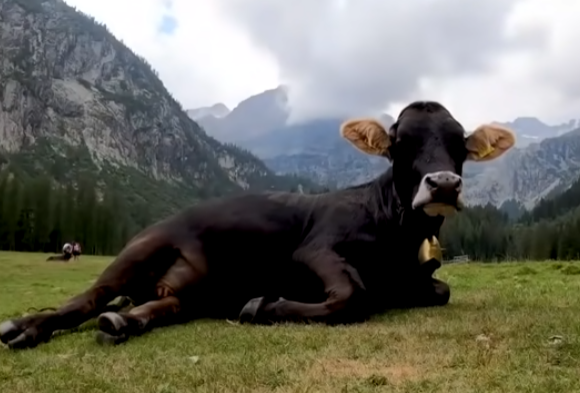Cloning technique was successfully applied by Chinese scientists to reduce their country’s reliance on imported dairy cows.
Recently, three Holstein Friesian cows were cloned in China’s Ningxia Hui Autonomous Region by researchers. The demand for goods like milk and other crops is rising as China’s middle-class population expands. However, a report in the People’s Daily tabloid Global Times claims that China must import 70% of its dairy cow population from abroad. The goal of the cloning project was to increase the nation’s access to dairy products and lessen its dependency on imports.
The cows were produced by the selective breeding of a Holstein Friesian known as a “super cow,” a dairy cow with exceptionally high milk production.
The super cows will be able to produce up to 36,000 pounds of milk each year, which is more than what is typically expected of Holsteins. China expanded its dairy imports from the United States shortly after the pandemic. According to AgriPulse, China’s dairy imports from the United States increased by 75% in 2021.
Scientists from Northwest A&F University used a sample from one super cow’s ear to make the clones. Only five out of every 10,000 dairy cows in China are reported to be very productive, according to the Global Times story, and efforts to clone more cows might greatly boost the nation’s dairy output. In order to increase its herd of extremely productive cows, China has attempted to conserve the genes of the relatively few animals who are regarded as super cows.
In terms of structure and skin texture, the new calves resembled one another, according to a press release from Northwest A&F University.
According to project director Jin Yaping, the embryos were implanted in low-production surrogates using reproductive technology in conjunction with cloning technology. Three successful calves were produced thanks to a mix of reproductive and cloning techniques.
About 50 of the 120 cloned embryos from the first experiment were inserted into the surrogates.
China has intensified its attempts to develop into a self-sufficient country by concentrating on seed technology to boost access to essential seeds and build a country with a secure food supply. China has used cloning technology to increase access to food before without success, as was the case with the successful cloning of dairy cows.
The largest animal cloning plant in the world was said to have started building in 2015. The Chinese business intended to grow in Beijing and had ambitions to clone racehorses, pets, and up to 1 million beef cattle annually.













